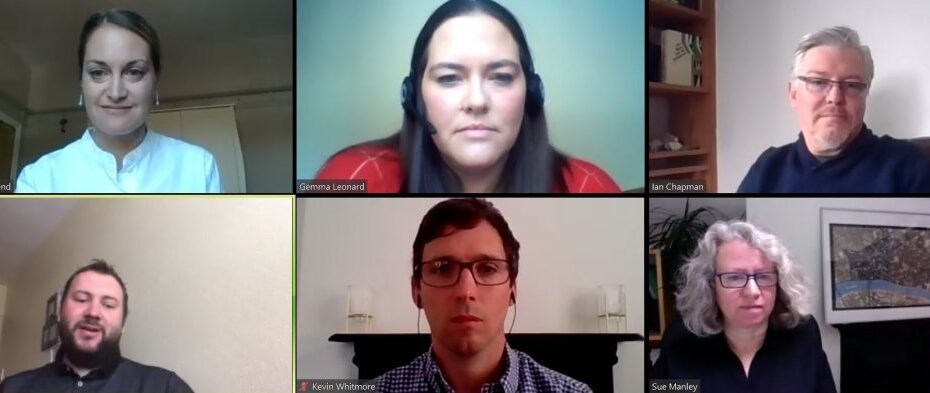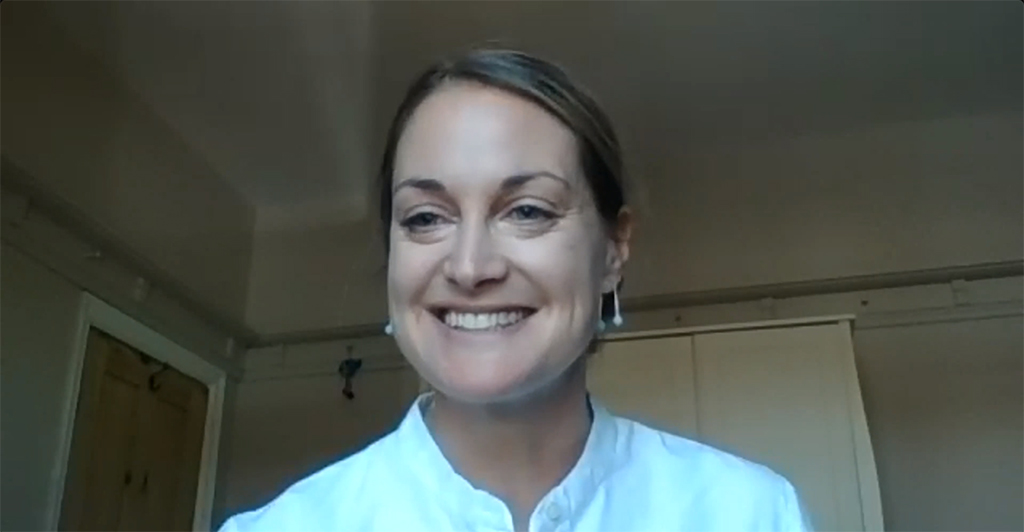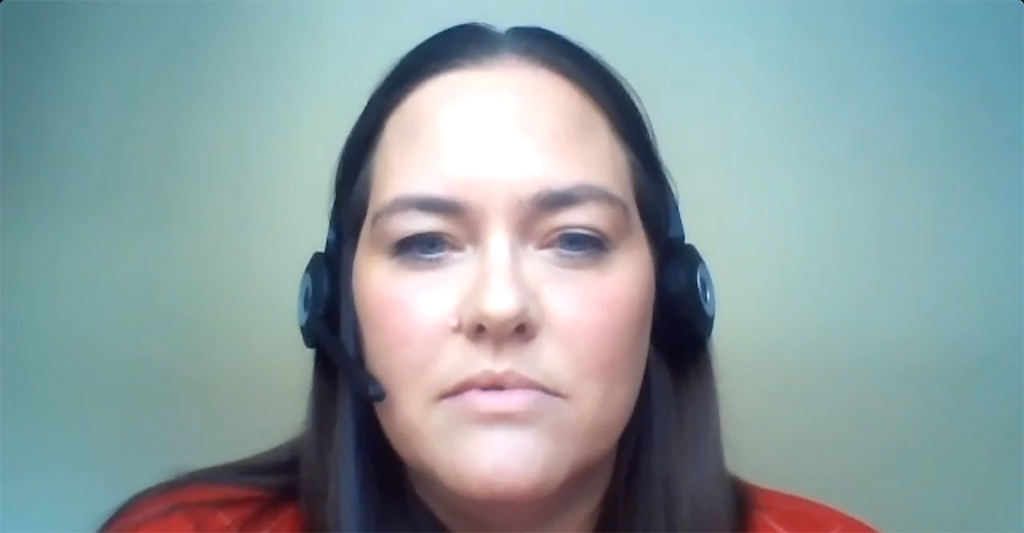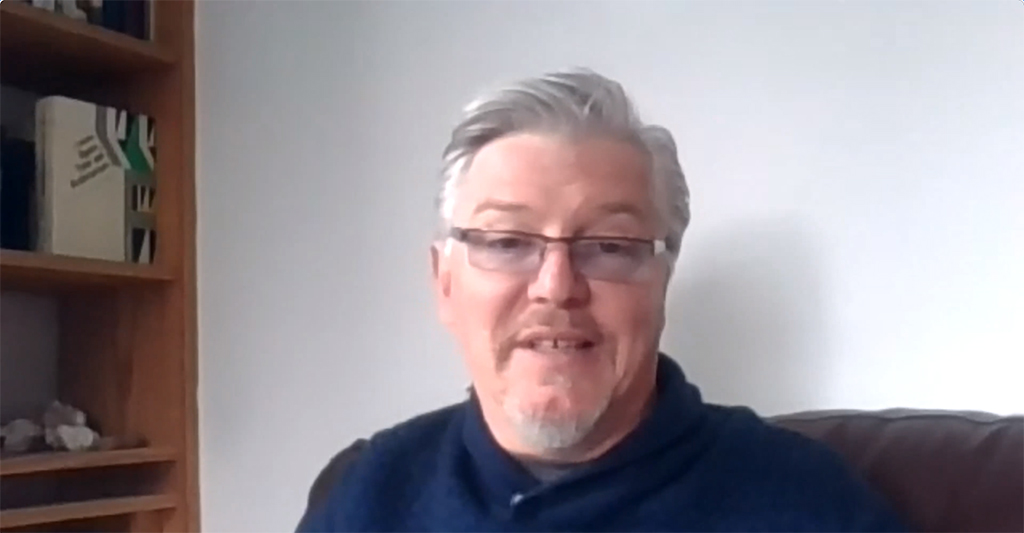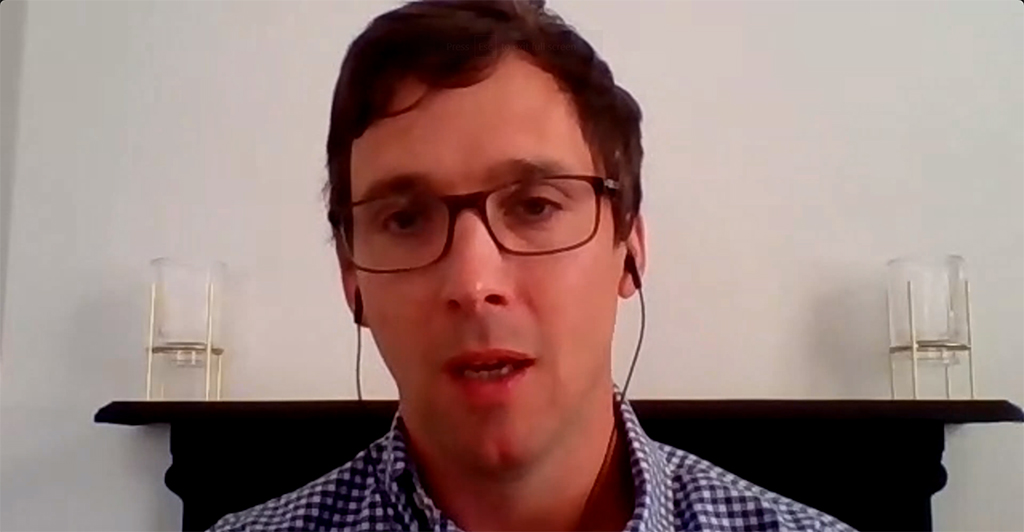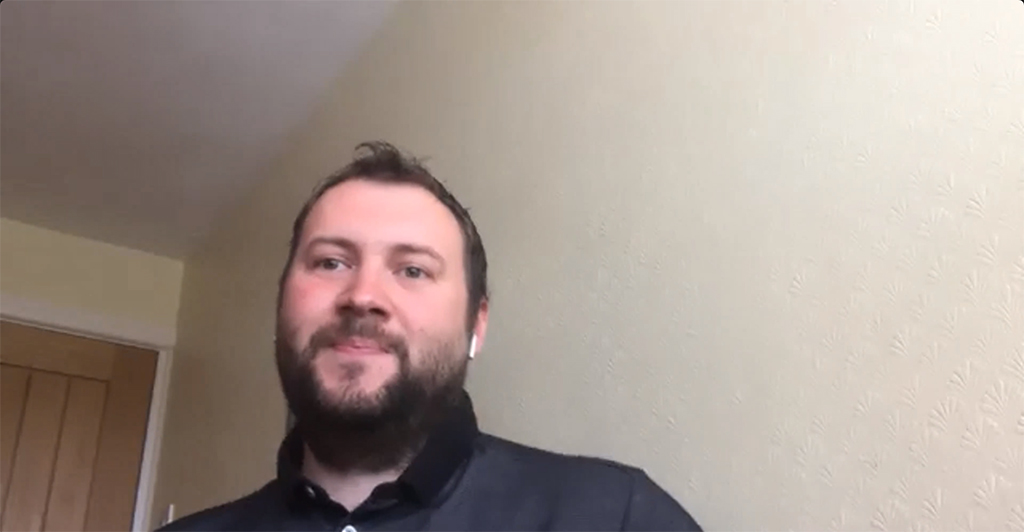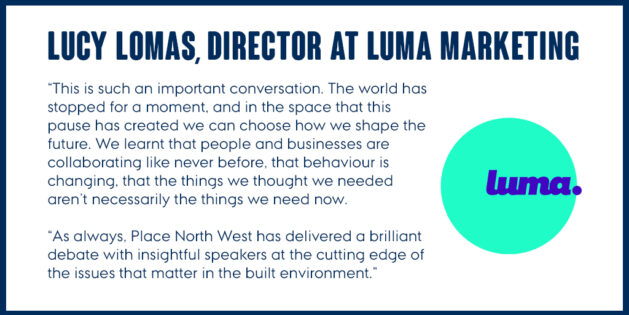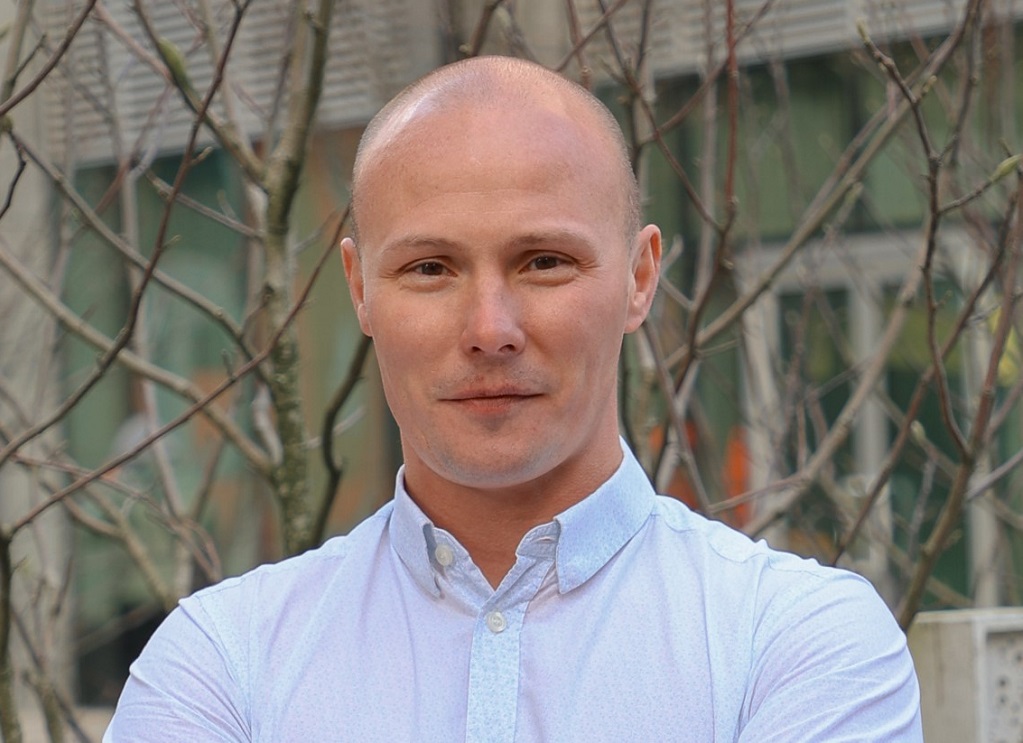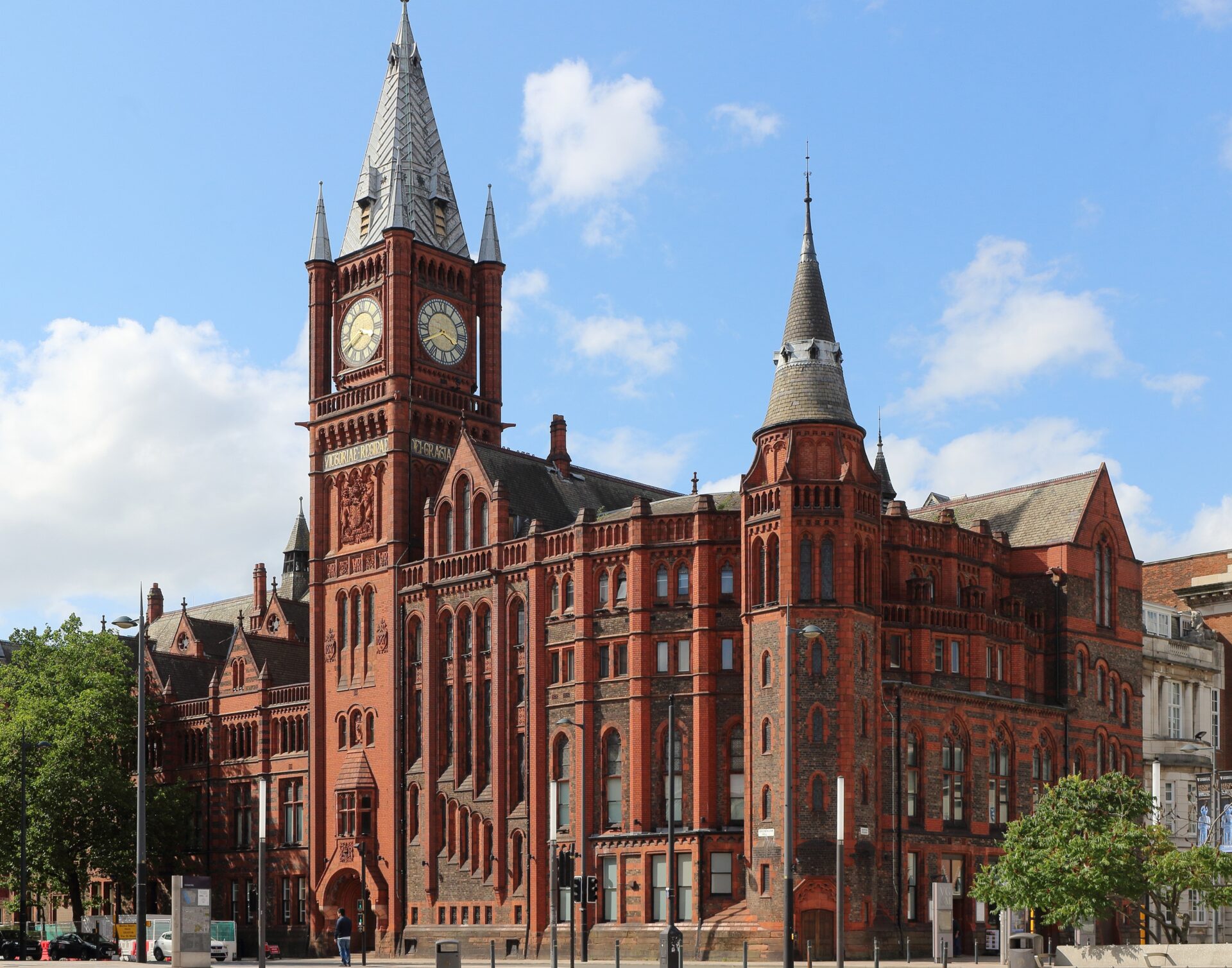Event Summary
Redefining Business as Usual | Video + summary
 Experts from the region’s built environment community discussed what the industry might look like after the period of upheaval caused by Covid-19 at Place North West’s first virtual event, sponsored by Luma Marketing and attracting nearly 300 live viewers.
Experts from the region’s built environment community discussed what the industry might look like after the period of upheaval caused by Covid-19 at Place North West’s first virtual event, sponsored by Luma Marketing and attracting nearly 300 live viewers.
Place North West editor Sarah Townsend hosted the discussion with a panel of professionals representing a range of disciplines across the sector:
- Legal – Gemma Leonard, partner at DAC Beachcroft
- Design – Ian Chapman, director at Fairhursts Design Group
- Technology – Jon Frost, director at Deetu
- Planning – Kevin Whitmore, director and head of the North at BECG
- Placemaking – Sue Manley, strategy director at Placemarque
- Sarah Townsend, Place North West
- Gemma Leonard, DAC Beachcroft
- Ian Chapman, Fairhursts Design Group
- Kevin Whitmore, becg
- Jon Frost, Deetu
- Sue Manley, Placemarque
Key questions:
- What trends and practices will remain and how will this impact placemaking?
- How much of the change we have seen as a result of the pandemic is here to stay?
- How in future will we define business as usual?
Main takeaways:
- The industry will become more receptive to different kinds of technology
- We could see a move away from reliance on city centres, as outlying towns become more self supportive
- There will be a permanent mix of face-to-face and virtual meetings, reducing the need to travel for business
- Major investment is required to facilitate positive change
Kevin Whitmore said that local authorities had, by and large, adapted well to the shift to a virtual planning process, and described this as “the way forward” with regards to boosting public engagement with applications.
“The genie is out of the bottle. We are all meeting virtually now. The benefit of being able to reach such a wide spectrum of the community easily, online, is something we are going to have for years to come.”
While planning activity has been encouragingly buoyant during the lockdown period, a gradual dwindling in the number of applications being submitted and determined is “inevitable” due to projected economic contraction, he said. Still, getting plans through the system now is key to economic recovery.
Gemma Leonard said that DAC Beachcroft is helping contractors navigate the legal difficulties presented by the Covid-19 pandemic, particularly with regard contractual rights. Establishing whether Covid-19 falls into the category of force majeure – a common clause in contracts that seeks to free both parties from liability when an ‘extraordinary’ event occurs – is high on many firms’ agendas.
She said that much of the work her firm has been doing hinges on negotiating potential extensions of agreed contracts because schemes have faced delays due to lockdown and site closures. Many companies are deciding how best to tackle the financial implications of having to impose more stringent safety measures on site.
Ian Chapman, too, said he had witnessed project delays as developers work out how to put in place tougher safety measures on site. Aside from this, Chapman said the majority of his company’s work had continued as normal albeit remotely, with many clients still preferring, and hoping to return to, face-to-face communication as soon as possible.
Chapman said in order for homeworking to continue successfully beyond the pandemic, the Government would have to invest more heavily in digital infrastructure to strengthen home wifi connectivity and improve domestic cybersecurity. Indeed, investment in general is required to prevent a mass migration back to city centres and retain the liveliness of outer city community centres, many of which have seen a resurgence as people work, shop and travel closer to home.
“We need to take a look at what we have achieved and keep it going, but there will be some difficulty in retention of the best bits because it will take considerable investment to do it.”
Chapman also said the lack of external space and balconies in city centre apartment complexes has made lockdown difficult for some, and Whitmore agreed. The becg director said councils may have to start making some difficult but necessary decisions about schemes that do not properly address human needs. There may also be the need to give residents more living space and that could require building in sensitive areas of the country.
A move away from city centre living is something that Sue Manley also envisaged. The Placemarque director said that smaller towns should become more “self-supportive” and that, as they thrive, this will inventivise people to stay away from city centres. She also urged a move towards more “people-focused” streets.
“The streets are emptier and it feels much more pleasant as a pedestrian, with people are starting to take over the streets. That’s happening almost by default because there are fewer cars around.
“Local authorities could look at widening pavements and creating larger areas of shared space, which could help make the environment more pleasant for pedestrians.”
She added that these types of projects were a “relatively cheap way of making places feel better for people”.
While we are likely to see an increase in traffic once lockdown restrictions are lifted, the panel agreed that in future the need to travel would be less pressing as a result of software like Zoom and Microsoft Teams rising in prominence during the pandemic.
Jon Frost said while these applications have helped many businesses, it is the change in people’s attitudes towards such technology that has allowed business to continue despite the global disruption.
“Technology has never been more important,” he said. “Attitudes have changed because we have been forced into this position.
“We’re in a tech bubble at the moment, but we need to figure out how this fits in on a day-to-day basis. Doing meetings virtually will be a lot more appealing and we will be more receptive to technology in general.”
In total, 75% of event delegates and panellists agreed that the business changes that have occurred as a result of the Covid-19 pandemic have been largely positive, according to a poll conducted during the virtual event. The remainder of delegates said the changes have been largely negative.
However, maintaining positive learnings from a difficult time will inevitably present its own challenges.


